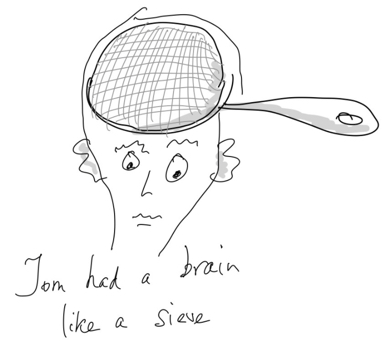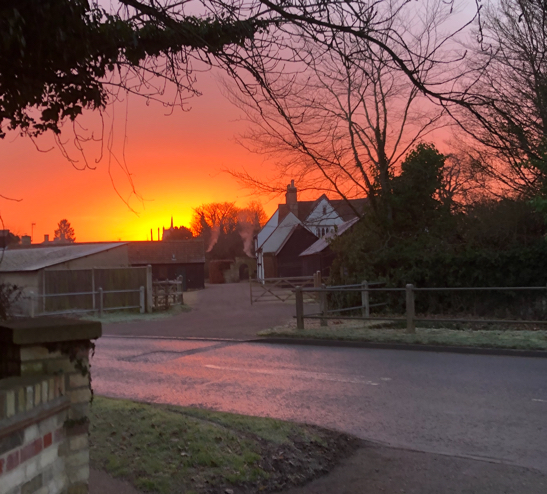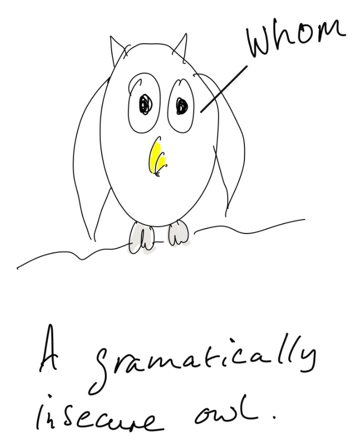“This leg-wear once belonged to a very eminent person”, said Tom grandiosely.
Personal Blogs
I find ironing clothes so tedious nowadays. I guess I’m just ironing bored.
Flowers in my garden

Sad news. The inventor of the Roulette wheel has cashed in his chips.
“I forbid you to go to the dance contest”, said Tom strictly.
It seems the underworld have an award for the most successful attempt to influence a jury. It’s known as the nobble prize.
I’ve been asked for a joke about German cheese. I’m on the Käse.
E was just an ordinary vowel really. Much like U and I.
What do you call it when a sheep is stopped for speeding?
A woolly pullover.
My vacuum cleaner should suck.
It doesn’t suck.
Therefore, it sucks.
Not many people know this but the US has a heavily-guarded facility where enormous quantities of string are stored. It’s called Fort Knots.
I let my wild thoughts
Carry me off through time and space

I wrote a program to search for words that contain only the letters abcdefg used as musical notes. I found 124 in the wordlist CROSSWD.TXT (courtesy of Moby Words II by Grady Ward). A bigger wordlist might find more. The 124 words appear below. What's the longest meaningful sentence you can find using only these words? If we can use proper names like 'Abe' we could have
Aged Abe deeded a faded cabbage bed.
aa
aba
abaca
abbe
abed
accede
acceded
ace
aced
ad
adage
add
added
ae
aff
aga
age
aged
agee
ba
baa
baaed
baba
babe
bacca
baccae
bad
bade
badge
badged
baff
baffed
bag
baggage
bagged
be
bead
beaded
bed
bedded
bee
beebee
beef
beefed
beg
begged
cab
cabbage
cabbaged
cad
cade
cadge
cadged
caeca
cafe
cage
caged
ceca
cede
ceded
cee
da
dab
dabbed
dace
dad
dada
daff
daffed
dag
de
dead
deaf
deb
decade
dee
deed
deeded
deface
defaced
degage
ebb
ebbed
edge
edged
ef
eff
efface
effaced
egad
egg
egged
fa
facade
face
faced
fad
fade
faded
fadge
fadged
fag
fagged
fed
fee
feed
feedbag
gab
gabbed
gad
gadded
gae
gaed
gaff
gaffe
gaffed
gag
gaga
gage
gaged
gagged
ged
gee
geed
Q. What do call a race between sea snails? A. The limpet games.
Until yesterday I had no idea that you can freeze soap bubbles. But you can.

Credit: https://commons.wikimedia.org/wiki/File:Frostedbubble2.jpg
Also check out https://www.ignant.com/2015/01/26/frozen-in-a-bubble-by-angela-kelly/

There's a place in Co. Roscommon, Eire, called Scregg.
So I guess if a bunch of people from that town wandered about a bit, they'd be ambling screggs.
Dear Laundry
Please submit your bill as soon as convenient.
Nietzsche
P.S. Have you read my latest article, There are no facts, only interpretations?
Dear Nietzsce
Your bill is as follows
Shirts 3 marks
Other items 2 marks
Total 5 marks
The Laundry
P.S. Very impressed by your article. We have reinterpreted your bill, which now stands at 500 marks.
Birds may seem free
For people it’s a delicate
Balancing act.
Pretzels.
Are they a kind of doughknot?
Birds don’t worry
I’ve bought you a new
Table
I'm definitely against torture. Especially of me.
This blog might contain posts that are only visible to logged-in users, or where only logged-in users can comment. If you have an account on the system, please log in for full access.
